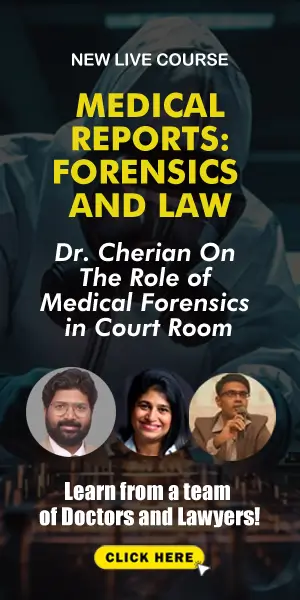- In YYY v. Union of India (2022), Justice P.V. Kunhikrishnan of Kerala HC granted the victim's mother's request stating that it was a shame that the victim's father was the alleged perpetrator. She added that the accused shall not be allowed to get away from the clutches of the Indian legal system and shall be penalized in accordance with the law. The single-judge bench further noted that since the victim was just a child of ten years old, medical complexities could be a possibility concerning her health and that considering all the facts and circumstances of the case, the Court must exercise its jurisdiction keeping the Almighty in mind.
- In this case, a 10-year-old girl was allegedly sexually abused by her father which resulted in her conceiving a child. When the current application was moved, she was already 30 weeks pregnant. Previously, when the matter was taken up, the medical board formed to examine the minor girl concluded that she would require surgery to terminate the pregnancy and that there was an 80 percent chance the baby would still survive the procedure. The board also stated that the operation involved a risk of neonatal morbidity and medical complications to the minor's health.
- The important statues to this case are mentioned below:
- The Medical Termination of Pregnancy (MTP) Act, 2003, was established to improve implementation and increase access for women, particularly in the private health sector.
- Article 226 empowers the high courts to issue orders or writs to any person or authority, including habeas corpus, mandamus, prohibition, quo warranto, certiorari, or any combination of these.
- The Juvenile Justice Act (JJA) of India addresses provisions for children who are in conflict with the law. It also includes provisions for children who require care and protection.
- In a similar case, XYZ v. Union of India and Others [MANU/MH/0565/2019], the Bombay HC issued specific directions regarding the newborn child's welfare if it survived. It was determined that the Court, while exercising its powers under Article 226, permits medical termination of the pregnancy and that if the child is born alive, the registered medical practitioner and the hospital concerned must assume full responsibility for ensuring that such child receives the best medical treatment available in the circumstances under statutory provisions in the Juvenile Justice Act.
- In the light of the aforementioned case and statutes, the Hon'ble Court ordered the State government and the hospital to ensure that the infant receives all necessary medical care if it was born alive. The Hon'ble Court issued the following directions concerning the same:
- The respondent hospital has one week to complete the necessary procedures under the Medical Termination of Pregnancy Act. If they require expert medical assistance from other specialists, they can request the Director of Health Services, who will act promptly.
- If the baby is born alive, the hospital will follow the law and assume full responsibility for ensuring that such a child receives the best medical treatment available in the circumstances so that it grows into a healthy child. It is also declared that if the child's parents are unwilling or unable to assume responsibility for the child, the State must take full responsibility for the child and provide such child with medical support and facilities as may be reasonably possible, always adhering to the principle of best interests of the child as well as the statutory provisions in the Juvenile Justice Act.
- Therefore, the Hon'ble HC granted the plea followed by the directions as mentioned earlier.
"Loved reading this piece by Sharmishta?
Join LAWyersClubIndia's network for daily News Updates, Judgment Summaries, Articles, Forum Threads, Online Law Courses, and MUCH MORE!!"
Join LAWyersClubIndia's network for daily News Updates, Judgment Summaries, Articles, Forum Threads, Online Law Courses, and MUCH MORE!!"














